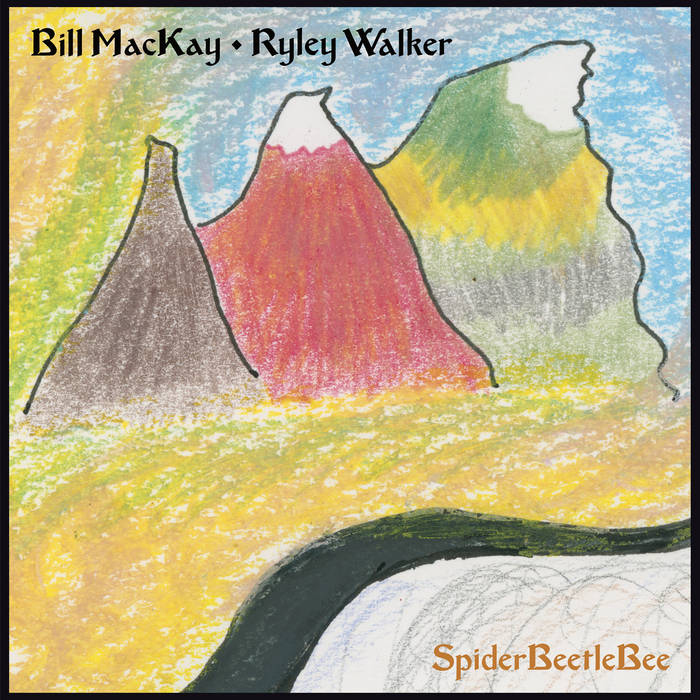Review: Bill MacKay & Ryley Walker – SpiderBeetleBee
National Music Reviews
Bill MacKay & Ryley Walker
SpiderBeetleBee
Drag City Records
Street: 10.20
Bill MacKay & Ryley Walker = Jim O’Rourke + Richard Dawson
Laid-back music is a difficult thing to create. Either the artist tries too hard to force a careless mood and ends up coming across rigid and stiff, or they’re actually so laid-back and careless that they can’t be bothered to put sufficient time into composition. In its successes and shortcomings, Bill MacKay and Ryley Walker’s latest collaborative album, SpiderBeetleBee, falls into the latter category. These dreamy, pastoral acoustic guitar duets feel genuinely relaxed, and the two often find a perfect balance between showing off their technical skill and leaving space for silence, tension and organic musical progression. However, there’s still some haphazardly structured moments and an overall feeling that a little more time could’ve taken the record from good to great.
The most frustrating part of SpiderBeetleBee is that the lower points occur during some otherwise interesting compositions. “Lower Chestnut” offers some fantastic, dense counterpoints and clever harmonic turns, but it’s criminally short and abruptly stops. The main melodic idea was intricate and malleable enough to be stretched further, and MacKay and Walker could’ve easily extended the more jarring, experimental passages. “Stretching My Dollar in Plano” sounds like the blueprint for a gorgeous Walker solo track, but there’s little evidence that the duo tried to compensate for the lack of singing, leaving the track relatively flat.
Some of the stronger, longer tracks allude to what SpiderBeetleBee could have been. “Pretty Weeds Revisited” stands apart for its inclusion of gorgeous cello playing (which also shows up on the closing track) and a unique take on global music. While the overarching style is Americana, MacKay and Walker hint at other styles, showing the deep, archaic connections between disparate music. The ambiguous, open harmonies of American folk music stem from pre-tonal Western music, a feeling that’s reinforced by the loose cello countermelody. However, these sounds show up in many Eastern musical traditions as well, a fact that the duo slyly acknowledge with the inclusion of tablas on “I Heard Them Singing.”
These intellectual nuances are clever, but the best tracks showcase the duo’s improvisatory power. The stand-out among these is “Naturita,” a slow spacious track that feels like MacKay and Walker are milking notes out of each other rather than performing a composition. This is especially true of the opening, where quiet harmonics bounce off of each other, slowly moving through moments of ease toward busier, dissonant phrases. Far removed from their normal folk-influenced fingerpicking, this seems more inspired by experiments in quiet extremes by composers like Morton Feldman.
As this track moves on, it builds to one of the most satisfying moments of guitar interplay. The rhythm player slowly speeds up and crescendos while the slide guitar gets more frantic with each second. The result flows naturally, using both harmonic tension and performance to show changes in energy. In six minutes, MacKay and Walker connect textural experiments rooted in the avant-garde with American folk, concisely building on John Fahey’s career-long goal.
MacKay and Walker are two incredible guitar players who have clearly spent hours practicing and studying diverse styles of music. Still, there’s a lot on SpiderBeetleBee that suggests they spend a similar amount of time drinking, thinking and goofing around. There are key moments where the duo mediates these paradoxes, but also many where one awkwardly outweighs the other. This album is already miles ahead of Land of Plenty, their first record together, so I can only hope that their third meetup continues the uphill motion. –Audrey Lockie

